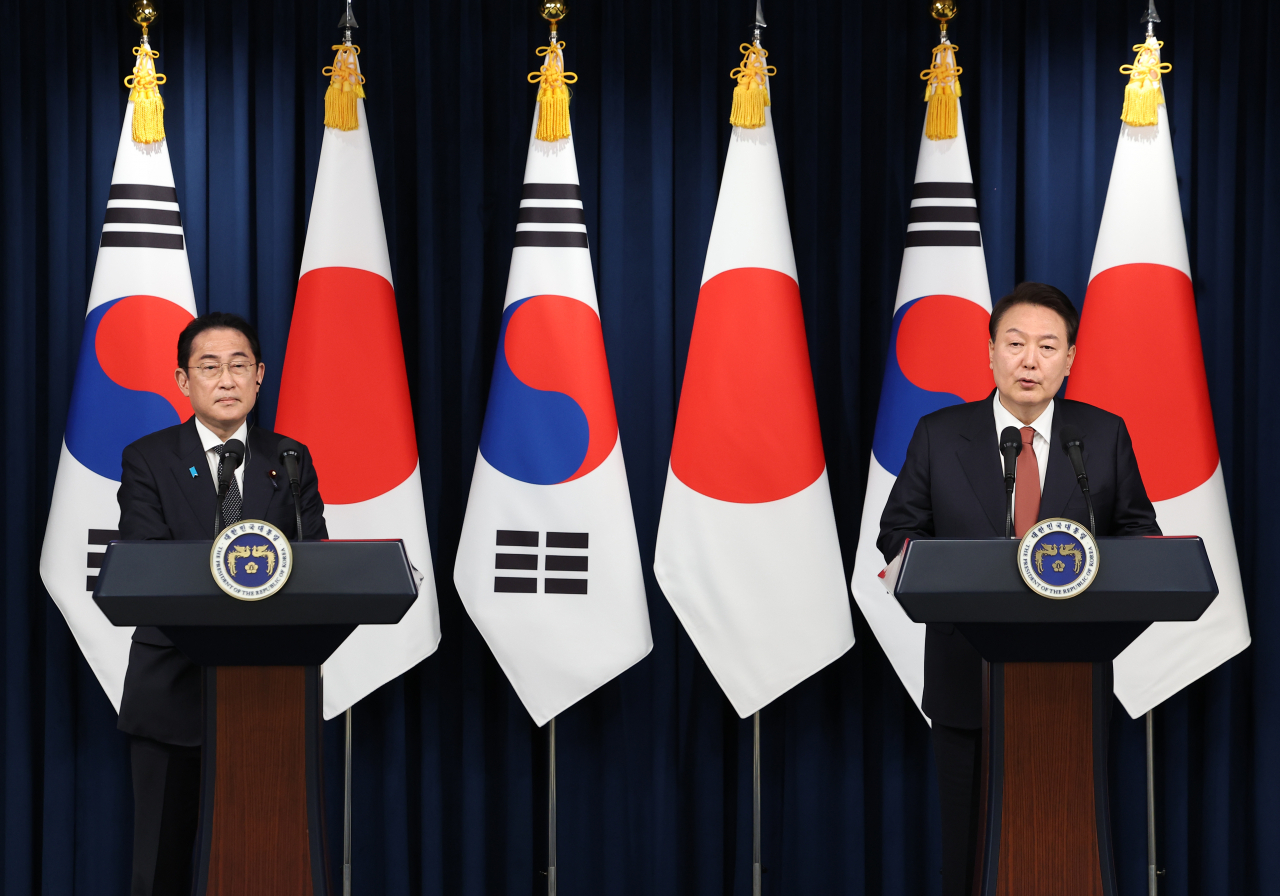Kishida says his ‘heart aches’ but gives no apology for forced labor
By Choi Si-youngPublished : May 7, 2023 - 20:06

Japanese Prime Minister Fumio Kishida said Sunday he felt heartbroken at the thought of the Korean laborers at Japanese companies during Japan’s 1910-45 rule of the Korean Peninsula, but did not directly apologize for their treatment or for forcing them into work.
He was speaking following a summit with President Yoon in Seoul on Sunday at which Seoul had hoped for a potential apology from Tokyo that would directly address the colonial rights abuses.
Japan has shied away from that by sticking to a broader apology for its colonial rule made in 1998, when the two countries signed it into a declaration.
“Our position is that we uphold all of our previous stances rolled out by the government on the colonial past, including the 1998 declaration,” Kishida said at a press conference, referring to what is accepted as a guidance for friendlier ties that discusses Japan’s “genuine reflection on its colonial past and sincere apology for it.”
President Yoon reiterated that Seoul would not “unilaterally demand” that Tokyo issue an apology for the rights abuses in particular, referring to an agreement reached with Kishida on March 6.
The agreement involves compensating the Korean victims without involving the Japanese firms held liable for such damages by a 2018 Korean court ruling. The companies still refuse to recognize the ruling.
“The March decision is the only legally sound way that satisfies both the 2018 ruling and a 1965 agreement,” Yoon said, citing a pact that normalized Seoul-Tokyo ties following Korea’s independence from Japan in 1945. Tokyo says the labor feud was settled under the treaty.
Yoon added that the two countries are in last-minute preparations to launch a fund meant to move past historical disputes and usher in “future-oriented” relations.
The fund, to be set up by the two country’s biggest business lobby groups to expand grassroots-level exchanges for youth, was made public at the March 16-17 summit during Yoon’s two-trip to Tokyo.
Kishida’s decision to reciprocate Yoon’s visit in just two months is the latest highlight of the two Asian neighbors coming together for a cause the two leaders openly say “is born out of common interests” -- one of which involves curbing growing nuclear threats from North Korea.
South Korea and Japan share universal values and they should come up with a way to project global leadership that can benefit both, according to Yoon.
“Just because we have yet to resolve all the disputes involving the colonial past, that doesn’t mean we can’t move ‘an inch’ toward discussing the present and future cooperation,” Yoon said at the press conference.




















